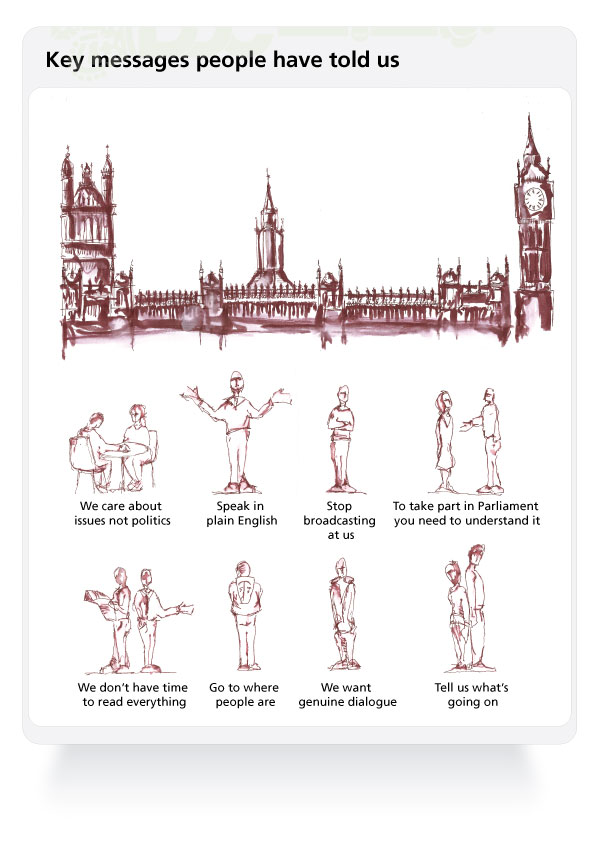Report of the Speaker’s Commission on Digital Democracy (UK): “…The Commission started by looking at how Parliament could use digital technology to work more effectively and in a way that people expect in the modern world. We also considered how digital could enhance the voting system, as this is a fundamental part of the UK’s system of representative democracy. We asked people to tell us their views online or in person and we heard from a wide a range of people. They included not just experts, MPs and interest groups, but members of the public—people of different ages and backgrounds and people with varying levels of interest in politics and the work of Parliament.

One message that resonated very clearly was that digital is only part of the answer. It can help to make democratic processes easier for people to understand and take part in, but other barriers must also be addressed for digital to have a truly transformative effect. As the Democratic Society put it:
“[T]echnology in itself is not a panacea and it will not effectively correct poor existing practices…we need to look beyond new digital tools to existing processes that do and do not work, and then critically explore how technology can help us to make democracy work better.”…./…
The Commission has drawn on digital democracy initiatives from across the world. We participated in the World e-Parliament Conference and have become a popular contact within the UK Parliament for others around the world interested in sharing good practice on digital democracy, openness and transparency.
Launched at the 2012 World e-Parliament conference, the Declaration on Parliamentary Openness is a call to parliaments and legislative assemblies for an increased commitment to transparency, openness and citizen engagement. Dr Andy Williamson told us the UK Parliament should adopt the principles set out in the declaration:
“It’s important to establish a credible and measurable set of objectives. A good starting point for this would be to adopt the principles contained in the Declaration on Parliamentary Openness, which can be summarised under the following four primary headings:
- Promoting a Culture of Openness
Parliamentary information belongs to the public.
- Making Parliamentary Information Transparent
Parliament shall adopt policies that ensure proactive publication of parliamentary information, and shall review these policies periodically to take advantage of evolving good practices.
- Easing Access to Parliamentary Information
Parliament shall ensure that information is broadly accessible to all citizens on a non-discriminatory basis through multiple channels, including first-person observation, print media, radio, and live and on-demand broadcasts and streaming
- Enabling Electronic Communication of Parliamentary Information
Parliament shall ensure that information is broadly accessible to all citizens on a non-discriminatory basis through multiple channels, including first-person observation, print media, radio, and live and on-demand broadcasts and streaming.”
We agree.
34 The House of Commons should formally adopt the principles set out in the Declaration on Parliamentary Openness….(More)”